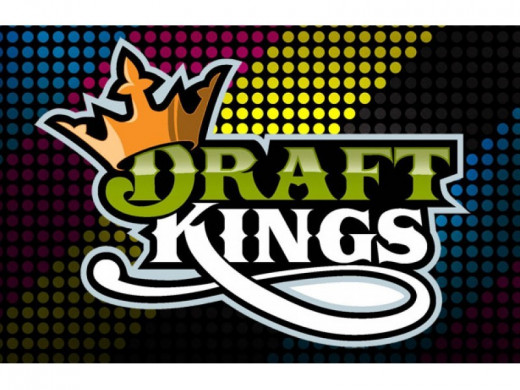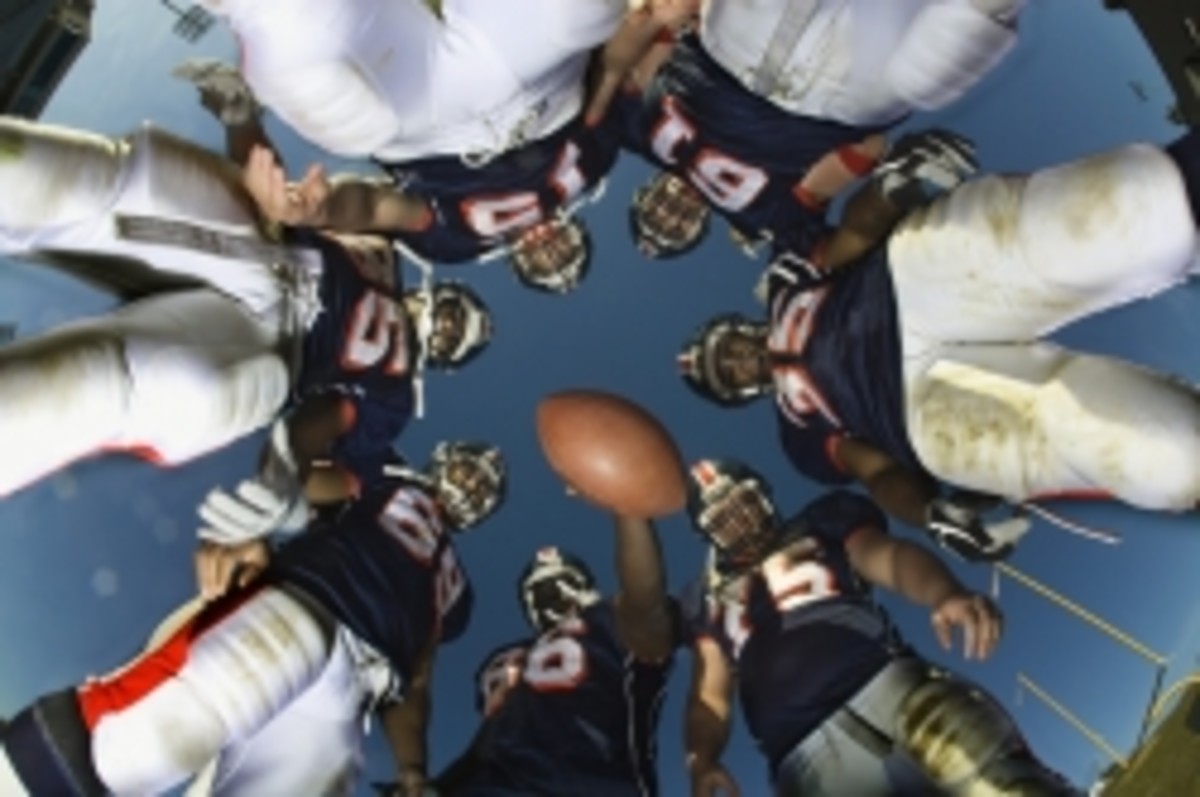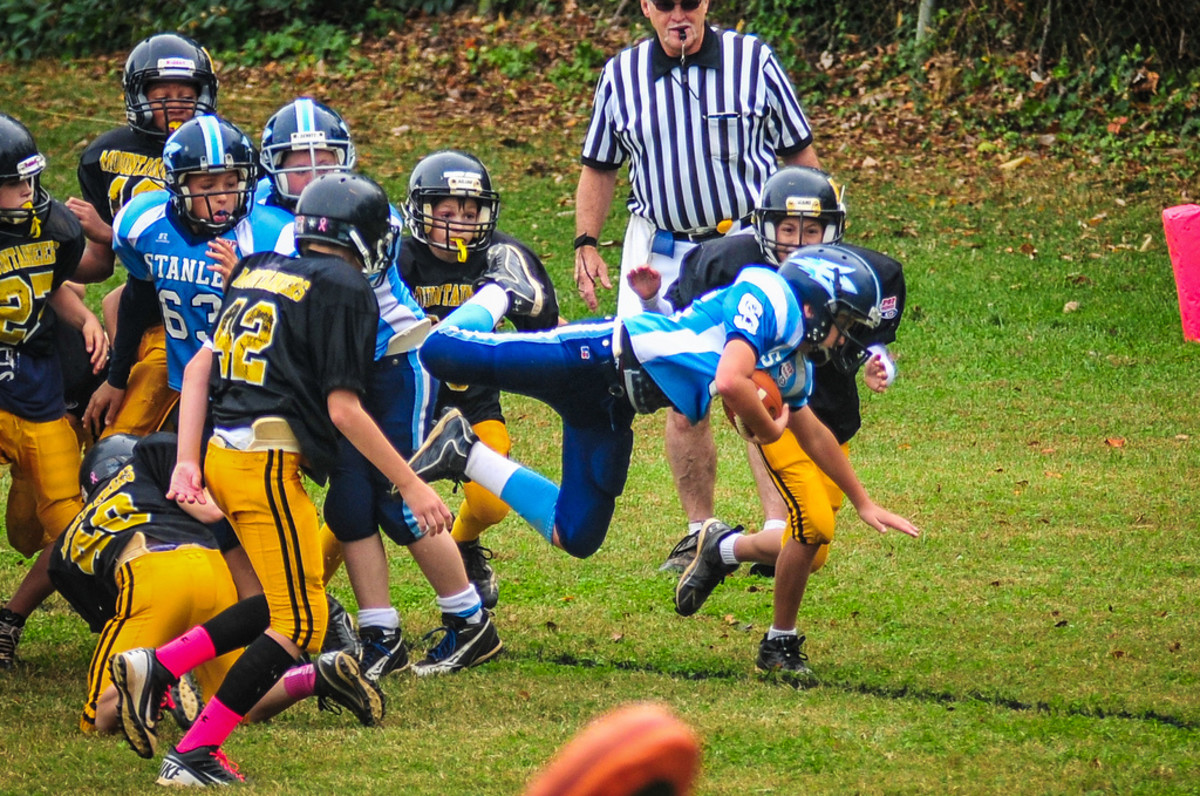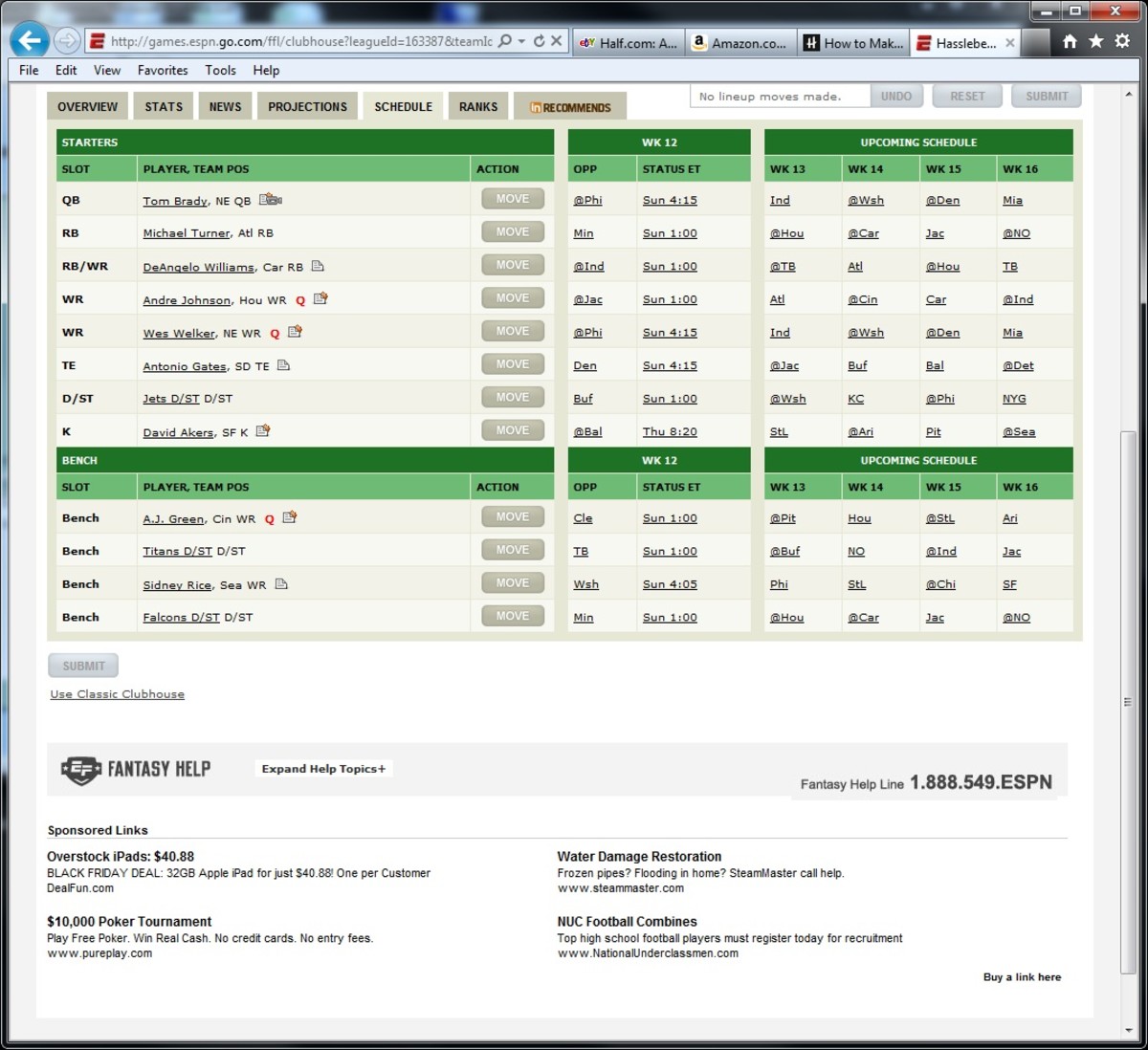Is Fantasy Football Just Another Form of Online Gambling?

Back in 1997, when it began, the fantasy sports industry was a niche corner of internet branding and marketing that served the interest of only the most tech savvy sports honchos. However, fast-forward approximately twenty years and you now have a $15 billion dollar industry that has attracted 57 million players from both the U.S. and Canada [ figures from 2015 study].
In the United States in particular, fantasy football (American Style Football) has captured the lion's share of the fantasy sports action, and it's profits. Sites like FanDuel.com and DraftKings.com have been particularly good at monetizing their customer base by setting up fantasy leagues. In these fantasy leagues, users play the role of a team manager (drafting players, setting up matches, etc). Users can then enter their teams into tourneys where they can pit their teams against other teams (and their users) for the chance to win money.
This business model has been popular for a number of years, but recently the fantasy sports companies have come under scrutiny for promoting or possibly participating in online gambling (Which is illegal under federal law). Therefore, the question now becomes: "Is fantasy football just another form of online gambling?"
Do you think using money on Daily Fantasy Sports (DFS) is the same as online gambling?

The Short Answer:
On a federal level in the United States, fantasy sports are exempted from the general ban on online gambling by the Unlawful Internet Gambling Enforcement Act of 2006. The act, which was signed into law by former president George W. Bush, is meant to prevent online gambling companies from collecting revenues through the internet and thus prevent the promotion of gambling via the web. However, the law contains a special provision for fantasy sports games and educational games on the condition that they "have an outcome that reflects the relative knowledge of the participants, or their skill at physical reaction or physical manipulation (as opposed to pure chance)".
However, despite this special provision there are five states in the nation that prevent users on the daily fantasy gaming sites from using their own money to wager on team outcomes. These states are Montana, Louisiana, Washington, Iowa. and Arizona.

The Longer Answer:
So with a only few notable exceptions, fantasy football is not legally considered gambling on a federal level in the United States. However, over the years as fantasy sports operations have gotten bigger and their business models have gotten more sophisticated (lucrative); they have attracted criticism from a variety of different sources. As of September 2015, a prominent critic has been New Jersery 6th district Congressional Representative Frank Pallone who has submitted requests to the Energy and Commerce Committee asking them to revisit their stance on the legality of fantasy leagues.
On a broader level, gambling addiction specialists nationwide claim that they are able to draw direct comparisons between gambling addiction and the Fantasy League "fanaticism" that has taken hold of many Americans as of late. Of particular concern to this cohort is the new Daily Fantasy Sports (or DFS) betting format that many of these Fantasy Sports Operations are moving towards.

How Addictive is DFS?
Traditionally, online fantasy sports matches were season-long events. A fantasy sports team's stats and the speed of gameplay closely followed the real-life football, basketball, baseball or soccer season. Under this model, users were expected to follow both their online fantasy teams and the real-life counterparts to their teams for 6 to 9 months in order to stand any chance of success.
However, between 2002 and 2006, the DFS model slowly became the norm. In this model, a user is able to play a complete tournament with their fantasy team in a single day. This specific model allows Fantasy Sports companies to rake in millions from both novice and expert level users alike. So what's wrong with this set up?
Well gambling addiction experts argue that DFS specifically removes one of the last distinguishing characteristics between online fantasy sports and regular online gambling: immediate/instant gratification. In the old fantasy sports model, users had to have a degree of commitment in order to appreciate the benefits/rewards of playing. In contrast, the DFS model is more akin to a slot machine. The worry is that true gambling addicts will easily get addicted to this new kind of highly interactive fantasy sports gaming experience.

A Game of Luck, Skill or Both?
As mentioned before, according to the the language of the UIGEA, the issue of whether or not fantasy sports games can be considered online gambling or not depends on to what extent the fantasy sport is a game of chance or a game of skill.
Advocates for the Fantasy Sports industry argue vehemently that DFS is mostly a game of skill with a small element of luck involved. According to these advocates, the outcome of most if not all fantasy sports tournaments can be determined by the "accumulated statistical results" of sporting events. And to be fair, there is a lot of evidence to back up their claims. For instance, many of the top performing DFS players make no secret of the fact they often use regression analysis, machine learning techniques, point-spread analysis and a host of other numerical techniques to get the edge over their competitors.
Moreover, industry leaders Fan Duel and Draft Kings claim that they actively combat gambling addiction and work actively to prevent unhealthy interaction with their product. Both companies claim to use specially-designed software that can "identify and interrupt" obsessive and compulsive fantasy team owners/ users. Yet, as the amount of money that is being wagered on fantasy sports mounts and the number of losers increases; many users are left feeling like they're in a typical casino setting.
compared to Traditional sports betting:
Probably the most distressing argument comes from Fantasy Sports' comparison to traditional Sports betting (which is illegal in all states except Nevada and Delaware). In 1992, Congress passed the Professional and Amateur Protection Act. The act banned all wagering on sporting events at the time except in the two states where it was already legal (Delaware and Nevada). Back then, Fantasy Sports was a technical niche that was on no one's radar; therefore the law made no mention of it.
Fast forward to the present day. The legal sports gambling institutions that operate in Delaware and Nevada often argue that there is a skill component to wagering on outcome of sporting events. They promote the idea that with just a little bit of research on injury reports, match-up histories, and the like....players can gain an advantage on the gambling house and make away with oodles of cash. Funny enough, this the exact same dialogue that the Fantasy Sports operations use on their client base.
Related Hubs (General Interest)
- Can I be sued if someone slips on ice/snow that I shoveled?
"OWWW MY BACK....I NEED AN ATTORNEY." So let's say that a major blizzard just tore through your neighborhood. You have 10 to 12 inches of the white stuff piled up on your sidewalk, walkway, driveway, etc. Like most people you dread - How is Alimony Calculated in the United States?
Alimony (also called spousal support or maintenance depending on where you live), is a court-ordered transfer or money from one spouse to another spouse who is in need of financial assistance, following a divorce or lengthy separation. In the United. - Product Placement in Rap Music Lyrics
Informative article about the state of product placement in rap music. Same info also applies to product placement in music lyrics and music videos generally. Product placement is very pervasive.







